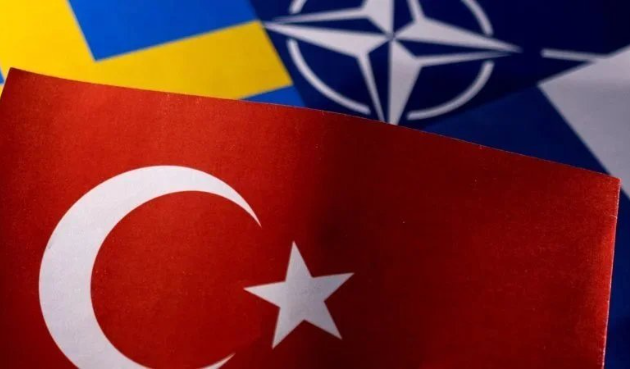On December 14, there were two important developments that show that Türkiye’s relations with both the United States and the European Union have become even more strained over the common denominator of Sweden’s NATO membership. One was the EU leaders’ summit’s acceptance of Ukraine, Moldova, and Georgia as candidates, and the other was the phone call between President Tayyip Erdoğan and US President Joe Biden.
I’ll get to the EU issue shortly. The current importance of Biden’s phone call is high. It suggests that Türkiye may give in about Sweden’s NATO membership approval, which is pending in the Turkish Grand National Assembly, despite the opposition of MHP leader Devlet Bahçeli.
Sweden, Greece, and Israel
A comparison of the statements made by the Turkish presidency and the White House at the Erdoğan-Biden meeting reveals an interesting picture.
Both the Presidency and the White House stressed that the meeting’s two primary issues were Sweden’s NATO membership and the Gaza crisis. The Turkish Communications Directorate’s message stressed the Gaza crisis, whereas the White House statement emphasised Sweden. Given that Biden was the one who called, it’s no surprise that the meeting began with the issues of Sweden and NATO.
The White House statement emphasised Biden’s reaffirmation of “Israel’s right to defend itself,” whereas the Turkish Presidency’s release emphasised Erdoğan’s request that the US “withdraw its unconditional support for Israel.”
While the White House pointed out that Biden stressed the necessity of Sweden’s NATO membership being granted “as soon as possible,” Ankara simply mentioned it in a sentence, saying the issue was discussed.
What Türkiye’s statement mentioned in a separate sentence was the F-16 issue. Washington, on the other hand, does not specifically name the F-16, but the term “improving Türkiye’s NATO interoperability capacity” can be understood as such.
While the Washington statement refers to “constructive steps” taken by Erdoğan during his visit to Greece, the Ankara statement does not mention Greece. However, the reference to “regional issues” can be interpreted as an address to the issue.
F-16 sales and Sweden’s accession
Biden’s words to Erdopan can be summarised as follows: “We are glad that you are not antagonising Greece; this may ease the issue of F-16 sales, but first you have to approve Sweden’s NATO membership. It is already impossible for Türkiye and the US to reach an agreement about Israel under the current circumstances.”
The shared denominator between the US and the EU appears to be Sweden, but the unspoken common denominator, the hidden agenda, is Russia.
The MHP’s objection may be intended to buy Erdoğan time until Russian President Vladimir Putin’s scheduled visit in early 2024, or it may be intended to hold the CHP accountable for Sweden’s recognition of the PKK without making any additional concessions.
As a result, the opposition may accuse the government of compromizing Türkiye’s interests because of the pressure before the municipal elections.
The EU’s hidden agenda
Things are getting worse with the EU because, following the admission of the Greek Cypriot Republic of Cyprus as a full member in 2004, Ukraine and Georgia, both of which have sovereignty difficulties on their borders, were also admitted to the Union, pushing Türkiye even further out. Moldova was likewise admitted as a candidate member without meeting any of the conditions demanded of Türkiye, solely on the grounds of the Russian threat.
It’s reasonable to assume that the EU has a hidden objective here. As the Ukraine conflict drags on, neither the US nor the EU’s financial or military backing is sustainable. The following is the hidden agenda: For some time now, the West has told Ukrainian President Volodymyr Zelensky, “Let us take you under our protection, sacrifice the territories occupied by Russia, and end the war.”
The message to Türkiye is “Just wait,” implying that economic relations with the EU may be in jeopardy as well.
Excerpt from the source, link here
Follow our English language YouTube videos @ REAL TURKEY: https://www.youtube.com/channel/UCKpFJB4GFiNkhmpVZQ_d9Rg
And content at Twitter: @AtillaEng
Facebook: Real Turkey Channel: https://www.facebook.com/realturkeychannel/
